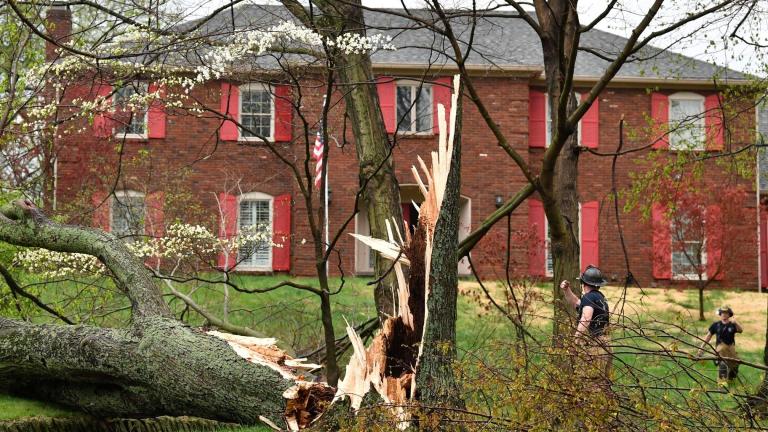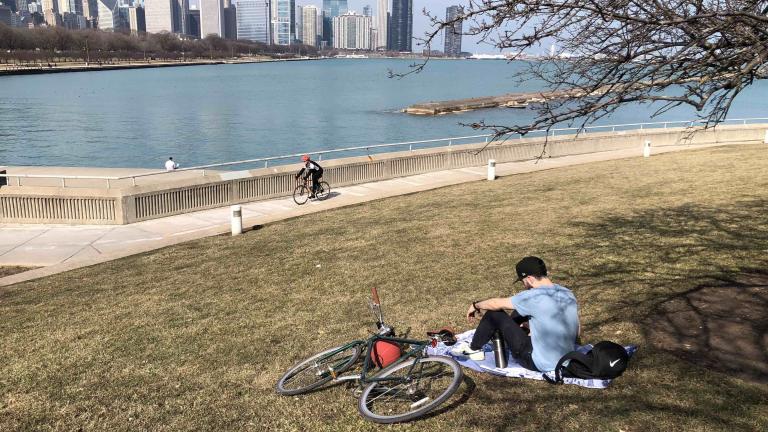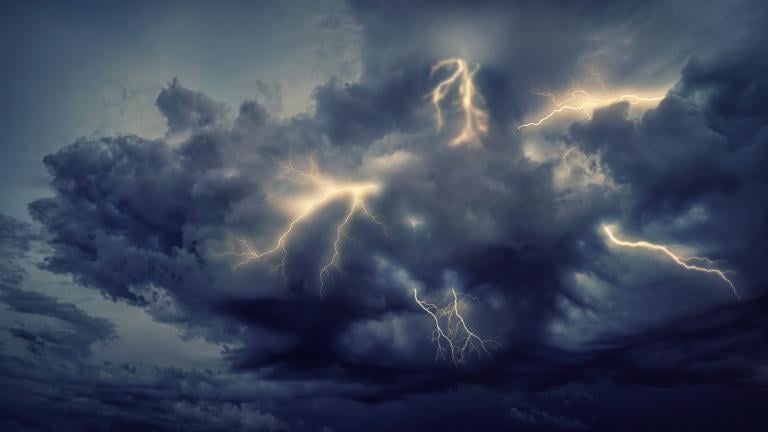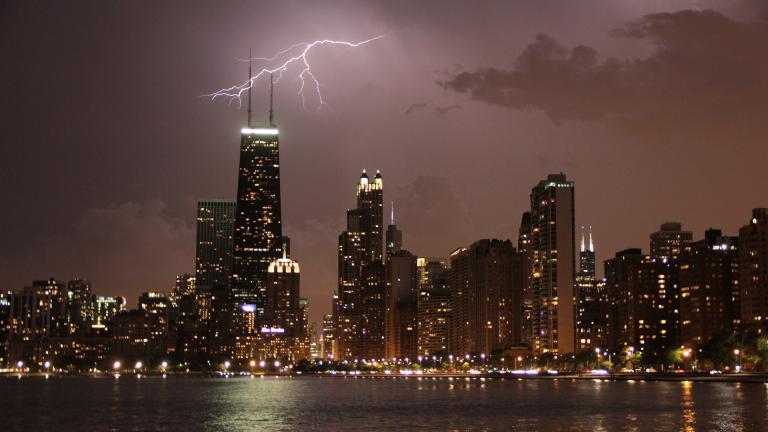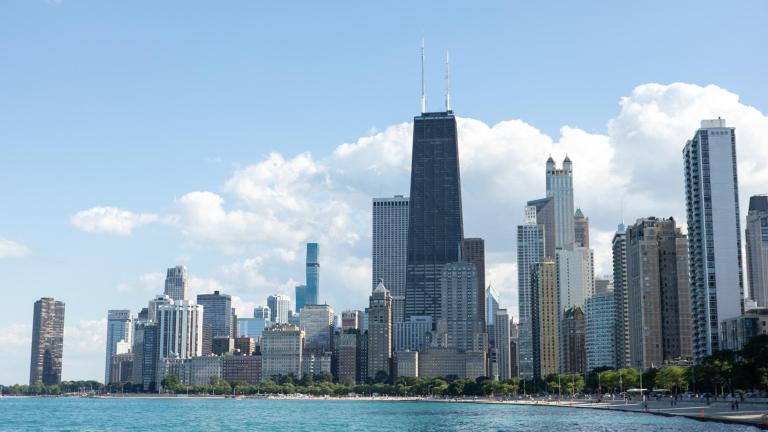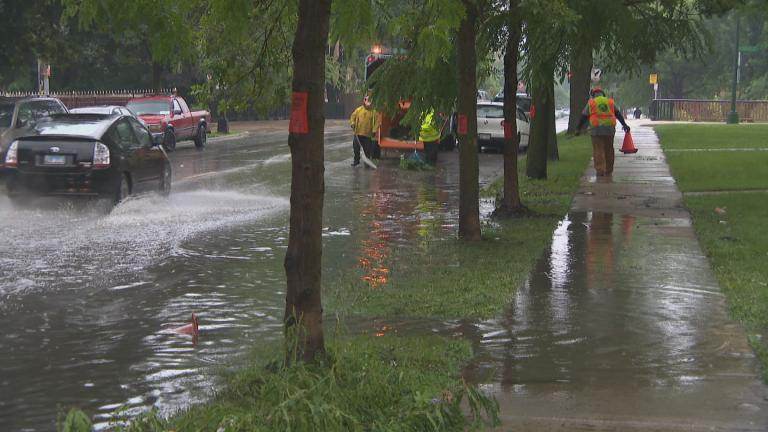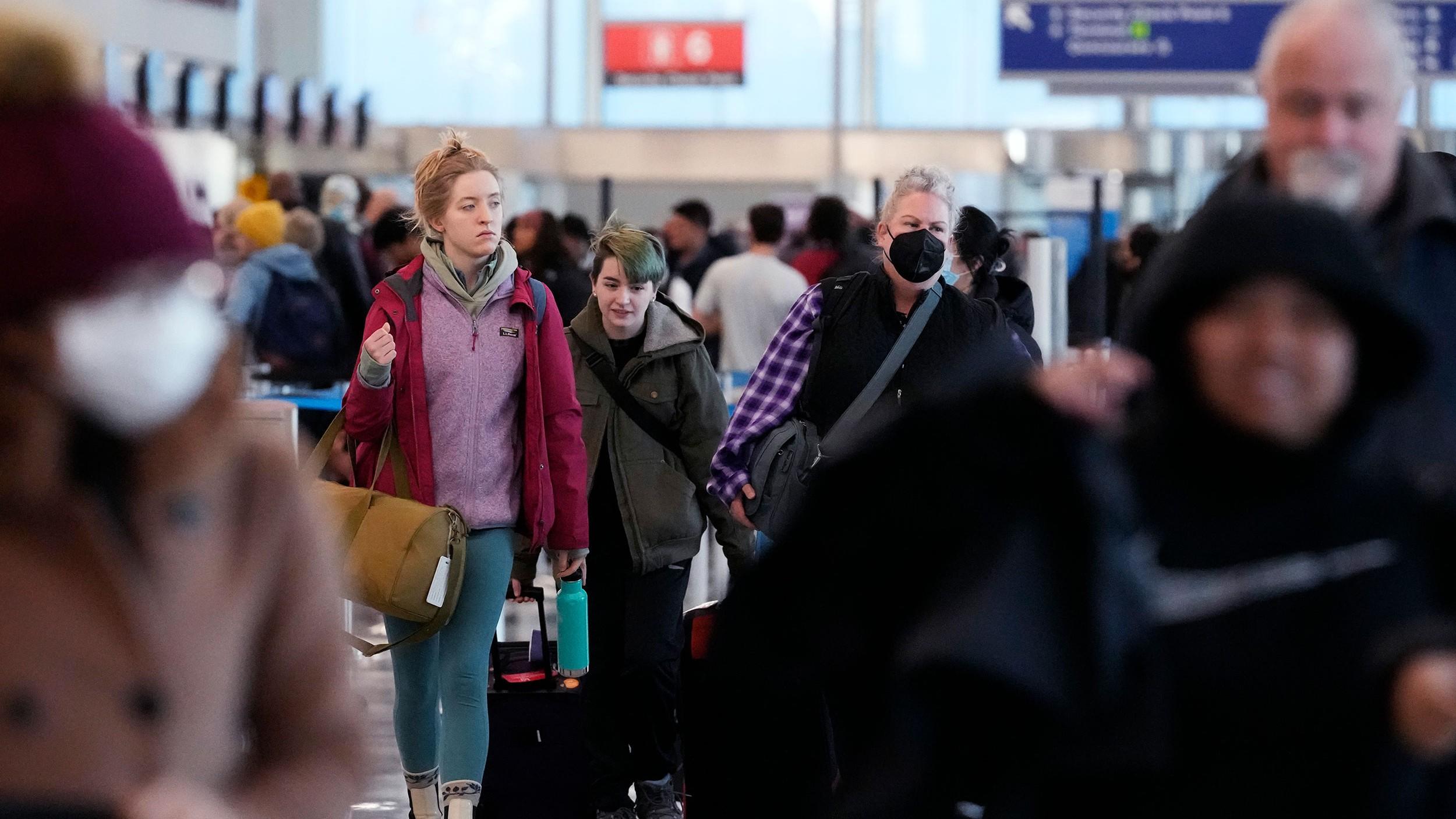 Travelers walk through Terminal 3 at O'Hare International Airport in Chicago. (Nam Y. Huh / AP)
Travelers walk through Terminal 3 at O'Hare International Airport in Chicago. (Nam Y. Huh / AP)
(CNN) – More than 2,300 Thursday and Friday flights have already been canceled as holiday travelers try to make their way to their destinations.
Chicago O’Hare and Denver International airports were seeing the most cancellations on Thursday, according to data from flight tracking site FlightAware, with the bulk of the cancellations so far on Friday affecting Detroit Metropolitan Airport and LaGuardia Airport in New York.
U.S. air travelers had a decent run of it over the July Fourth, Labor Day and Thanksgiving holidays with largely favorable weather conditions. But we’re in for a different story for Christmas.
Scott Keyes, founder of discount travel site Scott’s Cheap Flights, told CNN this week that “our luck might have finally run out.”
Yes, it certainly looks that way for many travelers.
An arctic blast and “bomb cyclone,” what the National Weather Service is calling a “once in a generation type event,” is delivering deadly cold, possible blizzard conditions and a proverbial lump of coal in our travel stockings. And it’s all coinciding with a travel season that’s returning to crowded, nearly pre-pandemic levels.
AAA, the auto and travel membership club, expects nearly 113 million people to travel over the end-of-year holiday period. Most of those travelers – nearly 102 million Americans – are expected to drive.
The number of travelers expected to fly – 7.2 million – is just shy of 2019’s 7.3 million. And when you factor in that airlines are operating fewer flights that are more crowded, there’s serious potential for a serious mess for air travelers.
Mother Nature has the final say. “There’s no amount of safety protocol or preparation that airlines can take that’s going to make it safe to land or take off in the middle of a snowstorm,” Keyes said.
Plus dangerous road conditions and temperatures for many millions more travelers.
How to cope? Here are some strategies:
Air travel strategies
• Take advantage of airlines’ travel waivers to leave earlier or reroute itineraries.
Here are links to major airlines’ waivers that allow rebooking without penalty during a short window:
-Alaska Airlines
-Allegiant
-American Airlines
-Delta
-Frontier Airlines
-Hawaiian Airlines
-JetBlue
-Southwest Airlines
-Spirit Airlines
-United Airlines
If your flight gets canceled, consider flying on Christmas Eve or Christmas Day, said Kathleen Bangs, a former airline pilot and a spokesperson for FlightAware. While there are fewer flights, there are also fewer passengers.
“Scheduling the first flight of the day is a great way to avoid flight delays,” Jeff Klee, CEO of CheapAir.com, told CNN Travel in a recent email. “Studies show that the first flights of the day are more likely to leave on time and arrive on time.”
• Get your travel tools in order.
The FlightAware app and airline apps will deliver alerts directly to your phone.
• Be prepared to multitask if your flight gets delayed or canceled.
Position yourself close to the agents’ desk, Keyes previously suggested to CNN Travel readers. And call while you’re in line to up your chances of getting a resolution faster.
Keyes recommends calling an airline’s international offices rather than competing with the scores of other passengers using their domestic lines.
He also encourages travelers to inquire about interline agreements between airlines. Your airline might be able to get you to your destination by putting you on another carrier.
• Know your rights and be prepared to negotiate.
Bangs encourages travelers to check DOT’s Airline Customer Service Dashboard. While it highlights 10 U.S. carriers’ commitments to passengers for “controllable” disruptions – which many of this week’s cancellations and delays won’t be – it also highlights passengers’ entitlement to a refund.
“If an airline cancels a passenger’s flight or makes a significant change in the flight, regardless of the reason, airlines are required to provide a prompt refund to a ticketed passenger, including those with non-refundable tickets, should the passenger choose not to accept the alternative offered, such as rebooking on another flight. Learn more about your right to a refund,” the DOT site says.
With so many flights oversold, airlines will be looking for volunteers to give up their seats and take a later flight, Keyes said. If you have flexibility in your plans, you can negotiate for better compensation.
Airlines may start out offering a $250 or $300 travel credit for passengers willing to give up their seats. “You don’t have to take the first offer. Expect that those offers are going to continue to ratchet up,” Keyes said. In many cases, passengers may be able to get $1,000 or more in credits, he said.
• Check your credit card’s travel protections.
Keyes said many credit cards offer reimbursement for expenses such as a hotel if you miss a connection or compensation if your bag gets lost. “But only if you use that credit card to purchase your flight,” Keyes said.
• Leave plenty of time. “The number one thing, and I cannot stress this enough, is that you must get to the airport early and well before your flight time,” said Gautam Thakkar, CEO of Unifi Aviation, the largest provider of aviation services in the United States. “If you are traveling with a lot of luggage or packages to check in, for example, arriving two hours early may not cut it.”
• Pack light. “The best way to ensure all luggage arrives safely to a traveler’s destination is to not check a bag. Packing light and carrying on is a great way to save money and have peace of mind that your luggage will make it to your destination with you,” Klee said.
MORE TIPS HERE for dealing with flight delays and cancellations.
Safety tips for road trips
Avoiding travel altogether is the safest thing to do when conditions are poor. The National Weather Service in Chicago tweeted Thursday morning about “life-threatening conditions” Thursday evening through Friday night. Stay on top of the latest forecasts and avoid traveling in dangerous weather.
When you’re traveling by car in the winter, it’s important to set out prepared.
Have your vehicle serviced as often as its manufacturer recommends, and do the following, the U.S. Centers for Disease Control and Prevention advises:
• Have the radiator system serviced or check the antifreeze level with an antifreeze tester. Add antifreeze as needed.
• Replace windshield wiper fluid with a winter-suitable mixture (which will contain additives to prevent freezing).
• Ensure the tires have sufficient tread and air pressure, which you can measure with a tire gauge. Replace worn tires and fill low tires with air to the pressure recommended for your car.
• Keep the gas tank near full to help avoid ice in the tank and fuel lines.
• Keep your car in proper working condition by checking the heater, defroster, brakes, brake fluid, ignition, emergency flashers, exhaust, oil and battery.
Pack what you’ll need in case of an emergency. Things such as:
• Nonperishable, high-energy foods such as nuts, granola bars, dried fruit or beef jerky
• Bottled water (Using an insulated bottle can help prevent freezing.)
• First aid kit including adhesive bandages, medical tape, antiseptic wipes, gauze pads, antiseptic cream, medical wrap and pocketknife
• Clothing to keep you warm – hats, wool socks, coat, hand and feet warmers, gloves, scarves, and blankets
• Battery-powered flashlight, extra batteries and flares
• Jumper cables, booster cables with fully charged battery or an external battery charger to start your car if the battery dies
• Basic tool kit
• Tire or tow chains
• Glass scraper for clearing windows
COMPREHENSIVE LIST HERE of what to pack for a winter road trip.
MORE STRATEGIES HERE on blizzard preparedness.
A few silver linings for air travelers
The next few days look daunting, but there are a few things going for air travelers this week.
Bangs points out U.S. air carriers are more fully staffed than they were last year at this time, even though there’s a loss in experience level.
Industry group Airlines for America said in a recent media briefing that the industry is adding around 4,600 employees a month. Airlines have ramped up hiring, reduced capacity and built in reserves and buffers to improve performance, the organization said.
And while the flu, RSV and COVID-19 are proving to be a respiratory triple threat, they don’t seem to be creating the havoc with employees that the Omicron strain of COVID-19 did last year around Christmas, Bangs said.
Finally, the timing of Christmas Day and New Year’s Day could help.
“This year, travel time will be extended due to Christmas Day and New Year’s Day falling on Sundays,” said Paula Twidale, AAA’s senior vice president of travel, in a statement.
“With hybrid work schedules, we are seeing more people take long weekends to travel because they can work remotely at their destination and be more flexible with the days they depart and return.”
With a longer calendar to play with, passengers will have more options when it comes to finding new flights. And with the winter weather the United States is experiencing, that flexibility may be especially important this holiday season.
The-CNN-Wire
™ & © 2022 Cable News Network, Inc., a Warner Bros. Discovery Company. All rights reserved.

